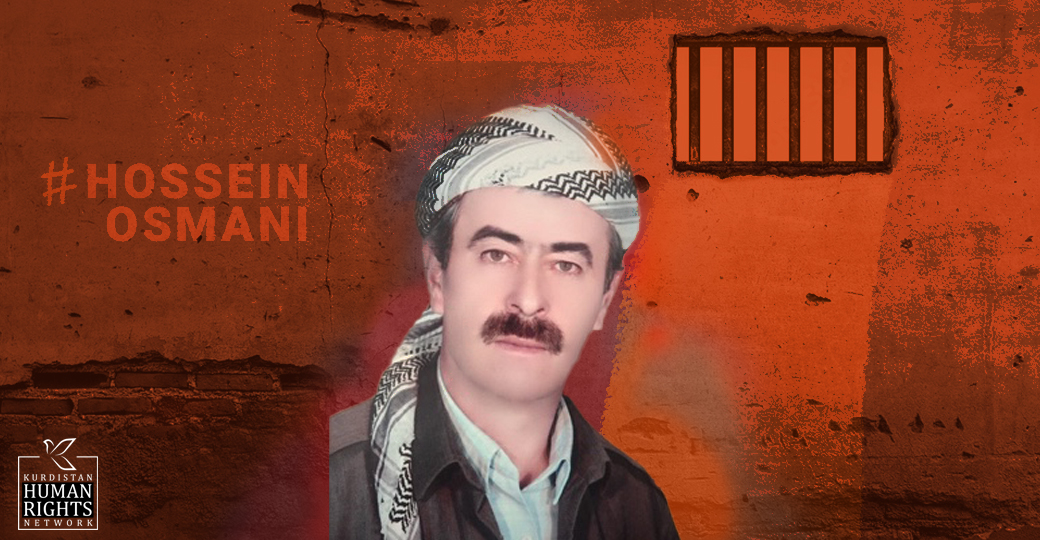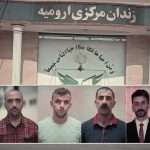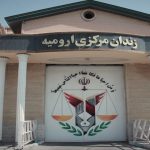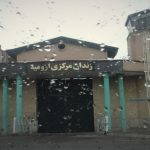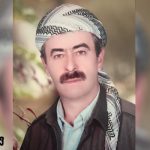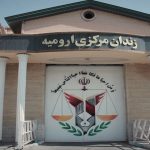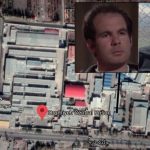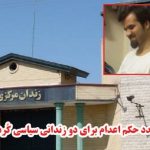On 22 September 2010, a bomb explosion during a military parade in Mahabad, West Azerbaijan Province, resulted in the deaths of 12 people and injured 40 others.
Following the explosion, military and security organisations provided conflicting statements regarding the identity and fate of those responsible for the bombing.
On 26 September 2010, Mohammad Pakpour, then-commander of the Islamic Revolutionary Guard Corps (IRGC) Ground Forces, announced that the “main perpetrators” of the bombing had been killed.
Despite the IRGC’s claims of having killed the main individuals responsible for the bombing, on 18 May 2014, the Ministry of Intelligence issued a statement announcing the arrest of three people involved in the bombing.
Arrest
Hossein Osmani was arrested on 23 February 2014, after he was summoned to the Ministry of Intelligence office in Mahabad, West Azerbaijan Province, and was then taken to the Ministry of Intelligence detention centre in Orumiyeh, West Azerbaijan Province.
At the same time, two other Kurdish civilians, Diako Rasoulzadeh and Saber Sheikh Abdollah, were also arrested in connection with the case filed against Osmani.
The three individuals were subjected to severe pressure and torture for 13 months at the Ministry of Intelligence detention centre in Orumiyeh to extract forced confessions regarding their alleged involvement in the Mahabad bombing.
Osmani spent four months in Khomeini Hospital in Orumiyeh, receiving medical treatment for injuries sustained during torture.
After about a year of enduring pressure at the Ministry of Intelligence detention centre, he was transferred to Orumiyeh Prison following the issuance of an indictment.
In September 2014, the Press TV channel of the Islamic Republic of Iran broadcasted the confessions of two of the defendants, Diako Rasoulzadeh and Saber Sheikh Abdollah, in which they spoke about their roles in the bombing.
These confessions were obtained and aired despite the fact that shortly after the Mahabad bombing, the then-Minister of Intelligence, Heydar Moslehi, the commander of the IRGC Ground Forces, Mohammad Pakpour, and the commander of Hamzeh Headquarters, Abdolrasoul Mahmoud-Abadi, had announced the identification and killing of the main perpetrators of the bombing.
Judicial Process
After two years of uncertainty, on 7 April 2015, without the right to a chosen lawyer, Osmani was sentenced to public execution by Branch One of the Islamic Revolutionary Court of Mahabad, presided over by Judge Javadikia, on charges of “enmity against God” (moharebeh) through membership in the Komala Party of Iranian Kurdistan and “involvement in the 2010 Mahabad bombing”.
Osmani refused to sign the court’s notice and asked his brother to hire a lawyer to defend him.
After appealing the verdict, the case was referred to Branch 47 of the Supreme Court, which in January 2017 overturned the decision of the Islamic Revolutionary Court of Mahabad and sent the case back to the first branch of the court for a retrial.
On 23 October 2018, Branch One of the Islamic Revolutionary Court of Mahabad, presided over by Judge Javad Gholami, sentenced Osmani to 30 years of imprisonment in exile in Orumiyeh Prison. The sentence was later upheld by Branch 31 of the Supreme Court.
The sentence was handed down and upheld despite the fact that Osmani had denied all charges in both trials. He showed the judge the scars of torture, asserting that the charges were based on forced confessions obtained under torture.
Current Status
Osmani continues to serve his sentence in Orumiyeh prison, despite being in poor health due to torture.
Additional Information
– On 14 July 2020, Osmani’s co-defendants Diako Rasoulzadeh and Saber Sheikh Abdollah were executed in Orumiyeh Central Prison. A week later, Ministry of Intelligence officers in prison threatened Osmani with execution.
– On 9 December 2020, Osmani, along with 13 other political and religious prisoners, went on a dry hunger strike in Orumiyeh Central Prison to protest the non-implementation of the “double-urgency bill for sentence reduction”. According to Article 7 of this bill, “In crimes against the internal and external security of the country, if the offender effectively cooperates in uncovering the crime and identifying other suspects, part of the sentence can be suspended”. The political prisoners ended their strike after meeting with the prison supervising judge and the judge of Branch Nine of the Enforcement of Judgements Office in Orumiyeh, who promised to follow up on their demands.
– On 2 October 2021, after enduring approximately eight years in prison, Osmani was granted temporary release on a bail of 10 billion rials. During the eight years, he was denied family visits.
Notes:
1. Article 279 of the Islamic Penal Code: “Moharebeh (enmity against God) is defined as drawing a weapon with the intention of killing, stealing from, or intimidating people in a way that causes insecurity in the environment.” According to Article 282 of the Islamic Penal Code, “if a person commits the crime of moharebeh, they will be sentenced to crucifixion, execution, amputation of the right hand and left foot, or exile, at the discretion of the judge.”
2. Komala Party of Iranian Kurdistan: The Komala of Revolutionary Toilers of Iranian Kurdistan, known as Komala, a Marxist-Leninist organisation with Maoist inclinations, after nearly a decade of clandestine activities, publicly declared its establishment on 15 February 1979, simultaneously with the victory of the 1979 revolution.
In 1984, Komala and several other leftist Iranian groups founded the Communist Party of Iran (CPI), and Komala was renamed to Komala Kurdistan’s Organisation of the Communist Party of Iran.
In 2000, part of the party’s leadership and members, under a project entitled “Reviving Komala,” split from the CPI and reverted to their original name before the formation of the CPI; the Komala of Revolutionary Toilers of Iranian Kurdistan or Komala Party of Iranian Kurdistan.
The Komala Party of Iranian Kurdistan believes in social democracy and considers “establishing a federal government” the appropriate solution for the Kurdish issue in Iran. The central headquarters of this party is in Sulaymaniyah, Kurdistan Region of Iraq.

